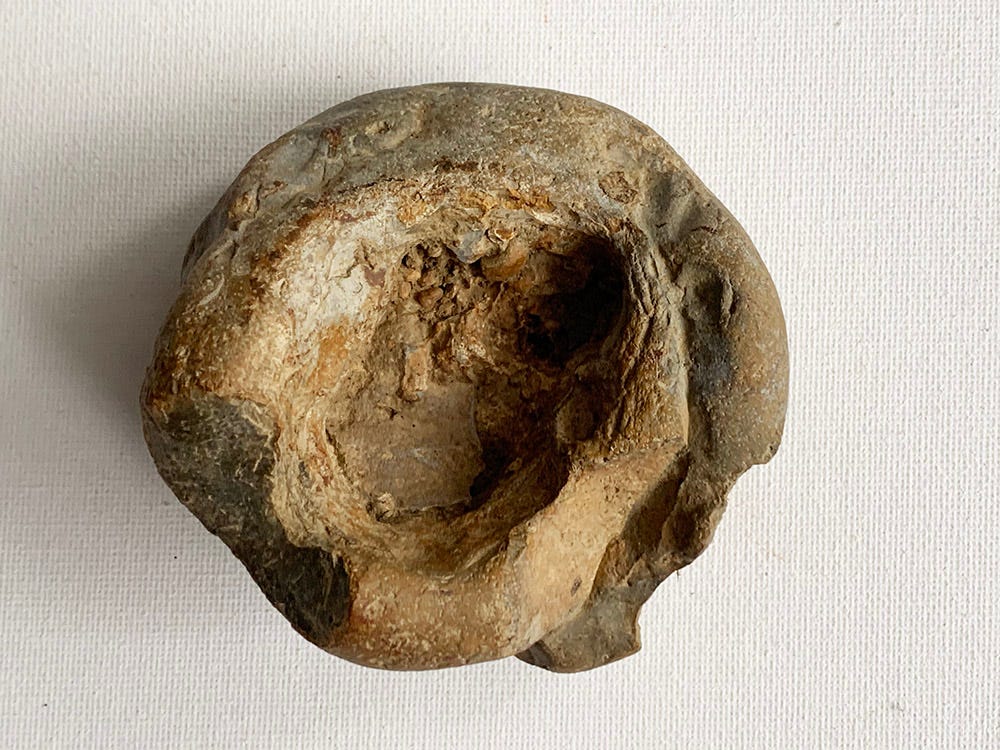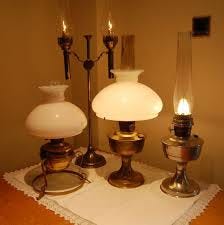Magical oils 1 – Theory and History
So, it has been a month since my Occult Conference Glastonbury talk and I had said I’d type up my notes from that so, in typically tardy fashion, here is the first of a series of posts about magical oils.
Over this series I’ll be talking about the history of the use of oils in magic, some theory around why they are so potent, why they are especially potent for some people in particular, as well as how to make, charge and use them.
So here comes part 1, the theory and history bit...
Safety first!
I’ll start with a safety caveat – all essential oils should be used with caution. They are highly concentrated substances – potent for magic but also potent in their physicality. Some can burn the skin, others seem fine but are photosensitive and will only react with skin when exposed to sunlight. Allergies are very common and can be difficult to predict.
Do not take essential oils internally – regardless of what you might read on the internet these are not safe for consumption
Prolonged inhalation of some oils may cause headaches
Do not apply to the skin undiluted
Do not rub your eyes while working with essential oils
Keep away from pets – many oils are fatal to animals
If pregnant consult with your doctor before using
Why oils?
My reasons for loving magical oils are threefold. The mythical, the material/sympathetic and the personal. Lets start with what I am calling the mythical.
In his ‘Three Books of Occult Philosophy’ our old chum Agrippa is quoted as saying:
“...and the oil being imbibed is fuel for the fire, the fire is the vehiculum of light.”
Lets unpack this a little...the quote is talking about oil being the substance in wood that allows it to burn. I consider this is a slightly oblique reference the myth of Prometheus, the titan who gave fire to humans. Fire which enabled them to cook their food and provided much needed warmth, but which more importantly allowed them more hours in the day in which they could see, and with that seeing gain wisdom and advance as a species. Fire as a gift from the divine – being that vehicle of light, and that light being the wisdom of the Gods.
It is easy to see this link when we consider the role oil played in the day-to-day life of people in the ancient world. Oils of all kinds were precious commodities – they were used for food, for medicine, for cosmetics, and as mentioned above, for light. It is oil’s very ubiquitousness that meant it was revered, but it was this use in providing light that really made oil magical in the eyes of our forebears. Oil was man’s primary source of light from neolithic times onward – and remained so until the Edwardian age. It is still a major form of lighting in many areas without electricity. That is many, many thousands of years of use.
I am also a huge fan of magical materia in all its forms – be it dirt, herbs, tools or oils. There is a Facebook post made by the late, great Jake Stratton-Kent, which states “sine materia, theurgia est impotens,” - my schoolgirl Latin is very rusty but this roughly translates as “without material, magic is impotent” and personally I find that to be true. In my opinion many magicians focus far too strongly on the celestial at the expense of the elemental. We humans are the living crossroads where the spirit and matter meet – and matter is a needed element in magic if we really want to create change on the manifest plane. In order to bring something into being we need to harness the elemental – if we are using planetary magic we need to bring something down from the celestial onto the Earth. An example of how the Earth element especially is neglected is shared as an anecdote of the Fortune’s Wheelhouse podcast, episode 15 – The Devil. Here the presenters talk about visiting a metaphysical shop and finding that all the angel cards were sold out, apart from Uriel, archangel of Earth. Poor old neglected Uriel...
My model of magic sees the operator as a link in a chain of intermediaries – this consists of me, then my ancestors and direct allies / familiars through which I contact the next rung – the angels or demons intermediaries (think Scirlin), their legions, those named entities themselves, onwards and upwards/downwards until you get to the head honchos themselves. Be that the great triumvirate of Lucifer, Beelzebub and Astaroth or the Great High Poohbah of God itself, however you perceive that primal force. My cosmology doesn’t need to be your cosmology – I’m definitely of a chaote bent and I’m quite happy with mine which I have selected and run with to great effect – your mileage may vary.
So, my second reason, which encompasses the above - is that materia is powerful and oil is especially powerful when we consider it from the point of view of sympathetic magic. I often describe magic itself as being the grease that gets the gears of life moving smoothly. In my opinion, while magic can achieve miracle, it is often best used in conjunction with concerted material effort. The old example being that you can do all the magic in the world to find a lover, but if you don’t go out into the world to meet people you aren’t going to find one. Your perfect sexual partner is highly unlikely to just arrive on your doorstep bearing gifts, no matter how much magic you throw at the situation. Magical oils, in a sympathetic sense, smooth the path of magic – providing a conduit for it to flow.
My final reason for finding oils so powerful is that, like incenses, oils harness the power of scent. We have all experienced a particular scent transporting us to another time, unlocking memories. For me the scents that take me back are pine trees in the sun bringing to mind memories of holidays in Greece, or Old Spice aftershave bringing afternoons with my grandfather to the fore.
I am largely (though no longer totally) aphantasic. This means I cannot see pictures in my mind’s eye. It was genuinely a surprise to me when I realised this was unusual – I had never truly considered that when people imagined something they could actually see it. Given visualisation is such an oft-mentioned tool in modern magic (and I’ll argue ancient magic too, but that is another post I need to make…) I worked hard to both improve my visualisation skills but also to tap into the other senses. As a result I use sound, movement, taste and scent in my magic to fire the imagination and to connect with spirit in ways even my blunt senses can understand.
A (very) potted history of oils in magic
Oils appear in our very earliest magical texts and, honestly, this section could go on forever. I am involved in researching this in much more detail, so today we will just have a whistle-stop tour around the use of oils in magical work.
Oil lamps appear in great numbers in the archaeological record, from the Middle Bronze age onwards – though there are earlier examples. Early oil lamps often took the form of simple open clay bowls with pinched lips to hold a wick. Below you can see an early Neolithic stone oil lamp made from a bowl shaped piece of flint, as well as one of the early pinched lip types of lamp which still shows the scorch marks were the wicks were placed.
Later Greek and Roman examples were enclosed, with small holes on the concave, finely decorated tops, which allowed the oil to drip into the lamp, as well as having small handles and spouts for the wick. These are the style of lamp referred to throughout the Greek Magical Papyri. I use a replica of one of these in my magic today – and they can be bought fairly easily on sites like Etsy.
The below image shows on of these decorative Roman lamps as well as Victorian / Edwardian style oil lamps from around 1900. Personally I think it is astounding just how long this technology was used. There is magic just in that very longevity.
The Ancient Egyptians made use of at least twelve kinds of vegetable oil – the most common being olive oil, almond oil and balanos oil. Balanos was often used for perfume making – being the base oil for the famous myrrh and galbanum heavy Metopian perfume of antiquity, as mentioned by Pliny. The very same perfumed oils were also used to anoint statues of the Gods.
Oil-based perfumes were key to the mummification process and were sealed in beautifully decorated jars and left as grave goods, alongside jewellery and other items of value. This is a great example of the continuity of life after death in the Egyptian psyche.
The Ancient Greeks used oils in medicine – with myrrh oil being commonly used for healing infection. The Romans later linked certain scents to particular Gods/ planets, correspondences we still use in magic to this day.
Oils, and there are many kinds but most notably olive oil and resin impregnated oils like frankincense and myrrh, are mentioned throughout The Bible, underlining their importance in both religion (read magic) and day to day life, as discussed earlier. As oil is derived from plants, then a shortage of oil usually followed a time of failed crops and was associated with famine and hardship, while possessing oils was a sign of wealth and abundance.
We find mentions of oils in later magical books and grimoires, and these oils are still in use to this day. The most famous being the Abramelin oil mentioned in the Sacred Book of Abramelin the Mage and later adopted in skin-searing form by Crowley, as well as the anointing oil used at the recent coronation for King Charles here in the UK.
Abramelin oil aside – much of the modern use of magical oils is (pardon the oun) rooted in Hoodoo Condition oils like ‘Black Cat’ for luck or ‘Come to Me’ for attraction. While Hoodoo is an interest of mine, as a white woman I do not think it is appropriate of me to talk much about this, so I’ll let you research that independently. There are a billions sources out there and the magic is potent – use respectfully.
The above is a greatly simplified summary – much is missing - my study is ongoing. But this series isn’t about history – it is about getting your hands dirty and making your own magical oils. Stay tuned as the next post will be about magical correspondences, how to design your own recipes and the steeping and blending processes. Stay tuned if you want to get creative!







